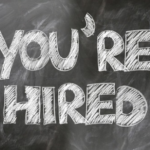In the competitive sector of job interviews, one can’t underestimate the significance of targeted questions. These specific inquiries are designed to assess not only your professional expertise but also your cultural fit within the company.
This article delves into the art of tackling target job interview questions with finesse, providing insights and strategies to navigate the process confidently.
Common Target Job Interview Questions
When you get an interview call from any company, you might encounter many thoughts. All of them can make you get confused. But, when you get an idea about the common targeted job interview questions, acing, it becomes really easy.
So, to help you get an idea, we have listed some common questions in the section below:
Tell Me About Yourself
This open-ended question lets the interviewer learn more about your professional background and personal attributes. Focus on your relevant experiences, skills, and achievements, providing a brief overview of your career journey.
Why Should We Hire You?
This question assesses how well you understand the company’s needs and how confident you are in addressing them. Tailor your response by highlighting your unique skills and explaining how they align with the position’s requirements.
What are Your Greatest Weaknesses?
This question evaluates your self-awareness and ability to handle challenges. Choose a genuine weakness, but frame it positively by discussing the steps you’ve taken to overcome or manage it. This showcases your commitment to personal and professional development.
Describe a Challenge You Overcame Recently
The interviewer wants to gauge your problem-solving skills and resilience. Share a specific example of a challenge you faced, detailing the situation, the actions you took, and the positive outcome. This demonstrates your ability to handle difficulties effectively.
Where Do You See Yourself with Us in 5 Years?
They ask this question to assess your long-term career goals and ambitions. Align your aspirations with the company’s trajectory, demonstrating commitment and a desire for professional growth within the organization.
Why Do You Want to Work in This Company?
This question tests your research and interest in the company. Showcase your knowledge of the organization’s values, culture, and achievements. Explain how your skills and goals align with the company’s mission, emphasizing the unique contributions you can make.
10 Tips to Answer Interview Questions in a Better Way
These ten tips are designed to empower you, ensuring that each response not only showcases your qualifications but also highlights your unique qualities, setting you apart as the ideal candidate.
Understand the Question
Understanding the question is the cornerstone of delivering a compelling and effective answer during an interview. It serves as the foundation upon which you can build a response that not only addresses the inquiry directly but also showcases your qualifications, thought process, and suitability for the role.
This understanding also enables you to navigate potential pitfalls, ensuring that your answer aligns with the interviewer’s expectations and the broader context of the conversation.
Furthermore, a clear grasp of the question empowers you to structure your response coherently, demonstrating your communication skills and the ability to articulate complex ideas. It’s like asking for a hint on your treasure hunt – nothing wrong with that!
Understand each part of the question so you can respond thoughtfully. Think of it as revealing different parts of the treasure map. Each piece gets you closer to the heart of what the interviewer wants to know.
Highlight Relevant Experience
When they ask about your experiences, focus on the ones that directly connect to the job. It’s like holding up the pieces that complete a specific part of the puzzle, making it clear that you’ve got what it takes. Avoid sharing pieces that belong to a different picture – keep it focused on the skills and knowledge that matter for this job.
Simply put, relevant experience is the stuff you’ve done before that directly connects to the job you’re aiming for. If the job needs someone great at organizing events, talk about that awesome event you coordinated last year.
Moreover, highlighting relevant experiences allows you to connect the dots between your past roles and the prospective position. By drawing parallels and explicitly linking your accomplishments to the key responsibilities of the role, you articulate a clear and convincing argument for why you are the best fit.
Use the STAR Method
Using the STAR method in interviews is like telling a story with a clear beginning, middle, and end. It’s your way of guiding the interviewer through a mini adventure—showing how you faced a challenge and emerged victorious.
First up is the situation where you set the scene. Begin by setting the stage. Clearly describe the situation or context where the experience occurred. Provide enough background information for the interviewer to understand the scenario.
Next comes the Task, your mission in the story. Think of it as defining your quest. This is where you explain your role and responsibilities, giving the interviewer insight into your part in the adventure.
Highlight your skills, competencies, and decision-making processes. Be specific about the steps you took, emphasizing your individual contributions. Describe what you did, step by step. It’s like narrating the hero’s journey—your journey. Break down your actions into clear, impactful details so that the interviewer can see your superhero moves.
Conclude by describing the positive outcomes of your actions. Discuss the impact of your efforts, whether it’s a successful project completion, improved team dynamics, or any measurable achievements. Quantify results whenever possible to add credibility.
It helps you structure your experiences in a way that captivates the listener (or interviewer) and leaves them with a clear understanding of your abilities and achievements.
Connect with Company Values
Connecting with company values in an interview is like finding common ground with a new friend—it’s about understanding and embracing what matters to them. Imagine the company’s values are the shared interests that strengthen friendships.
Connecting with company values while answering interview questions is a strategic and impactful approach! It not only showcases your alignment with the organizational culture but also demonstrates your genuine interest and commitment to the company. It’s like studying the hobbies and preferences of your new friend. Dive into the company’s mission, vision, and the principles they uphold. Understand what matters most to them.
During the interview, express how your own values align with those of the company. It’s like saying, “I value the same things you do.” This connection goes beyond the technical skills—it’s about sharing a common ethos and contributing positively to the workplace culture.
When you weave company values into your responses, it adds an authentic and sincere touch to your answers. It goes beyond a generic acknowledgment and demonstrates that you’ve taken the time to research and internalize the values, indicating a genuine interest in being part of the company.
Be Positive and Confident
Approaching an interview with positivity and confidence is like wearing a winning smile. It instantly brightens the room and sets a welcoming tone. Picture it as stepping into the interview space with a can-do attitude, ready to showcase your best self.
Being positive means framing your experiences and responses in an optimistic light. It’s like emphasizing the silver lining in your professional journey. Instead of dwelling on challenges, focus on what you’ve learned and how it has contributed to your growth. This positive outlook not only uplifts your own spirits but also creates a favorable impression on the interviewer.
Confidence, on the other hand, is about believing in your abilities and expressing that belief authentically. Imagine it as walking into the room with a firm handshake and steady eye contact. Speak confidently, share your accomplishments without hesitation, and let your self-assured demeanor reflect your competence.
Positivity and confidence work hand in hand during an interview. Demonstrating positivity during the interview signals your genuine interest and enthusiasm for the position. It shows that you are not just seeking a job but are genuinely excited about the opportunity and ready to contribute to the organization.
Avoid Negative Language
When an interviewer asks about challenges or weaknesses, it’s not about dwelling on the difficulties but showcasing your resilience and growth. Avoid using negative terms or expressions that might cast a shadow on your achievements. Instead, frame your responses in a way that highlights your ability to overcome obstacles.
For instance, rather than saying, “I struggled with tight deadlines,” you can phrase it positively by saying, “I developed effective time management skills to meet challenging deadlines.” This subtle shift in language accentuates your proactive approach and ability to adapt.
Negativity can create an unwelcome vibe in the interview room. By avoiding negative language, you contribute to a more constructive and optimistic conversation. It’s like keeping the dialogue focused on solutions and accomplishments, leaving a favorable impression on the interviewer.
Choosing a positive language is not about ignoring challenges but showcasing your ability to tackle them head-on. By keeping your responses optimistic, you present yourself as someone who approaches difficulties with a can-do attitude, a valuable trait in any professional setting.
Conclusion:
In conclusion, mastering the art of answering interview questions is like unlocking the door to career success. As you embark on your professional journey, it’s crucial to have a reliable platform to connect with job opportunities seamlessly. In this digital age, iApply is the beacon guiding you toward your dream job.
With its user-friendly interface and comprehensive job listings, iApply streamlines the job application process, providing a convenient and efficient way to explore and secure employment opportunities.









